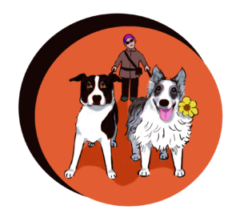For immediate release: September 10, 2023
Nanaimo, BC: PACTA BC announces the event, Are They Having Fun? Identifying Appropriate Dog-Dog Play. This interactive presentation showcases professional dog trainer and behaviour consultant Christina Young, BSc, CDBC, PCBC-A, KPA-CTP (www.Positive.Dog). Young will discuss what it looks like when dogs are enjoying play together, as well as how to recognize when they are not and what to do about it.
“An estimated 35% of Canadian households include dogs and dog parks are a growing amenity in many communities. Many dog guardians think their canine companions enjoy playing with other dogs, but don’t really know how to tell,” says Sylvia Currie, President of PACTA BC. “Intervening if interactions seem to be too rough can also be tricky. This presentation will teach how to read canine body language, provide guidelines on how to determine if intervention is necessary, and share ideas of qualities of a good playmate for your dog.”
Date: Wednesday, September 20, 2023
Time: 6:30 pm to 8:30 pm
Location: Beban Park Social Centre, 2300 Bowen Rd, Nanaimo, BC, as well as simultaneously live streamed on Zoom
Cost: $30 to attend in person or to attend via Zoom (includes a recording of the event for later viewing)
For more information or to register, please visit https://www.pactabc.ca/identifiying_appropriate_dog-dog_play.
Spokespeople: Sylvia Currie
hello@pactabc.ca
Please contact us for additional information or to book an interview time with the spokespeople available.
Established in 2020, PACTA BC (Professional Animal Care and Training Association of BC) promotes reward-based, humane animal care and training in British Columbia.
